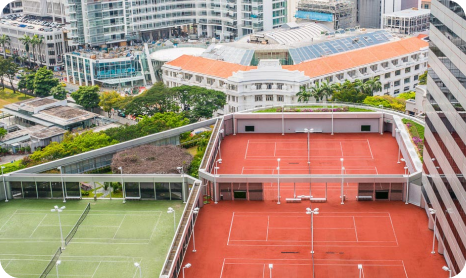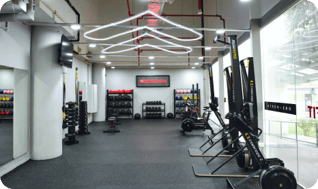Limiting and frustrating performance in equal measure, mental barriers often creep up at the most inopportune times. Be it unexpectedly in the thick of competition or striking at ones lowest in injury, mental barriers impose unwanted impassable psychological blocks that severely curtail abilities, often unbeknownst to those it afflicts. Mental barriers are the bane of physiotherapists and coaches all over the world, but with skill and patience, these barriers can be overcome in those identified to have them.
What Are Mental Barriers?
A mental barrier can be described as a psychological obstacle that prevents one from performing a particular skill. This mind and body disconnect sees athletes fail to score during a match a goal that they would have converted a 100% of the time in training, or, in the context of injury, sees fear of movement grip someone with an old meniscal injury from moving their knee in a natural manner.
Symptoms of mental barriers typically include:
- Stark inconsistencies in performance outside of controlled training
- Increased sense of fear of certain movements or scenarios leading to avoidance or freezing
- Reduced confidence in your abilities or self esteem
- Increased catastrophising thoughts
- Decreasing motivation levels
Are Mental Barriers Related To Mental Illness?
Though mental illnesses may predispose one to developing mental barriers, they are not one in the same issue. An athlete with clinical anxiety may not see that same anxiety limit a sport they thoroughly enjoy playing. Conversely, one may have a negative affective response to injury without having clinical depression. The updated World Health Organisation (WHO) definition of mental health agrees with this understanding and defines mental health as “a state of well-being in which every individual realises his or her own potential, can cope with the normal stresses of life, can work productively and fruitfully, and is able to make a contribution to her or his community”. Mental health and mental illness can in fact be seen as 2 different continuums as seen in the following diagram.
Figure 1.1 – Holistic conceptualisation of mental health by Purcell et al. (2022), based on the work by Keyes (2002, 2005).
In functional Magnetic Resonance Imaging (fMRI) studies looking at the brains of elite athletes, it was found that areas of the brain that dealt with resilience were markedly more developed, allowing them to contend with adversity far better. This superior mental health state of the brain allowed athletes to flourish instead of faltering or choking in the competitive arena.
Physiotherapy Role in Overcoming Mental Barriers
Physiotherapists in the sporting field pride ourselves in helping clients achieve their maximal potential level of functioning. So in the case of mental barriers where function and psyche are inextricably linked, it is not uncommon to see physiotherapists working with athletes on their mental and emotional states surrounding their function. The 2 main areas that physiotherapists work to overcome mental barriers are during rehabilitation in injury and in coaching for peak performance. These 2 groups of athletes require different tactics to overcome their mental barriers as they stem from differing root causes.
Mental Barriers Following Injury
“In the beginning, when I was young I thought I will never have surgery when I am active. I always felt, I’m one of the few who never has to endure operations because I will take time off when I have pain. I would rather skip tournaments than having to do surgery because I always thought doing surgery is the beginning of the end. And I was not wrong.”
Roger Federer, From the documentary “Federer: Twelve Final Days”
How it develops
Athletes hardly ever entertain the thought of injury. So when an athlete sustains an injury, it is often accompanied by feelings of uncertainty and anxiety about returning to sports participation. Accompanying that loss of function comes a change in identity from being an athlete to becoming an injured-athlete, and athletes go through the whole gamut of emotions pertaining to the grief cycle. From regret to bargaining, coaches and physiotherapists have seen it all.
How it impacts the athlete
With all this anxiety and uncertainty, it is not surprising that following an Anterior Cruciate Ligament (ACL) injury of the knee, about 80% of competitive athletes return to some type of sport, but only 65% return to preinjury levels of participation, and only 55% return to competitive sport. This is largely driven by fear of re-injury as the negative experience of the initial injury becomes an ever present concern for the athlete. Moreover, unnecessary time and energies are often invested into the injury under the pretence of “protecting” or an indefinite process of “rehabilitation”, which often falls short of providing what that injured limb truly requires for healing.
How physiotherapists work through it
As physiotherapists, we use 3 strategies to help our athletes overcome injury related mental barriers:
- Empowerment – A good rehabilitation plan starts by laying out all the information and presenting it to the athlete so that they can make informed decisions and take ownership of their rehabilitation. Essential information include prognosis with realistic timepoints, rehabilitation options, and methods to prevent re-injury. From here, athletes and their therapist perform goal setting through collaborative deliberation which paves the way for the rehabilitative journey to take shape.
- Task Based Progression – Gone are the days where physiotherapists and athletes blindly follow time based protocols which do not consider the suitability of athletes in progressing to the next stage of rehabilitation. With the dawn of task based progression (Figure 1.2), athletes and physiotherapists have clear criteria and goals to work on before allowing athletes to perform certain tasks unsupervised. This imparts a sense of confidence in the athlete’s capacity of their own body to perform the intended movement with a low level of fear of unpreparedness. This also eliminates the tendency to compare recovery times against others who have had similar injuries as they now peg their abilities against a tailored checklist specific to their own sporting needs.

Figure 1.2 – Ten Task Based Progression After ACL Reconstruction by Buckthorpe (2020)
- Implicit Skill Acquisition – If an athlete post ACL reconstruction spends all their mental energies focusing on what their knee is up to, they won’t have time to actually play their sport. Implicit skill acquisition demands that the athlete be able to execute tasks without having to divert attention to the process by which the task is achieved; in another manner of speaking, having knowledge of result without deliberating on the knowledge of process. As coaches and physiotherapists, we can attest to the importance of sports specific drills and movements that athletes need to access intuitively to allow for cognitive bandwidth to be directed onto the field of play. Using strategies that instil confidence and ability in athletes from highly structured setting into open play, we move them across the control-chaos continuum (Figure 1.3).
Figure 1.3 – Infographic on the Control Chaos Continuum in Return to Sports (RTS) by Sports Med U Newsletter, based on the work by Tabner (2019)
How you can work through it
Here are some top tips for you if you are dealing with mental barriers after an injury:
- Empower yourself with knowledge of your prognosis and don’t fixate on the diagnosis, your diagnosis does not define you
- Set clear goals that are realistic to your healing timeline and celebrate achieving those goals
- Improve the narrative surrounding your injury by allowing time to grieve, replace blame with responsibility, and being compassionate with yourself and your body
- Where appropriate, incorporate re-injury prevention components early into your rehabilitation to build confidence in your body
- Lean on a community of like minded individuals to walk with you on the road to recovery, your journey does not have to be a lonely one
Mental Barriers In Sports
“Even then people were talking about whether it would ever be possible for someone to run a mile in 4 minutes. ... There was no logic in my mind that if you can run a mile in 4:1.25, you can't run it in 3:59. ... I knew enough medicine and physiology to know it wasn't a physical barrier, but I think it had become a psychological barrier.”
Roger Bannister, First person to run a sub 4 minute mile
How it develops
Mental barriers in sports are usually attributed to performance anxiety and fear that develop following either a prior traumatic event or an anticipated traumatic event. An example of the former could be an instance where failing a certain skill resulted in a narrow loss, thereby shattering confidence in subsequent performances, and for the latter it could be the anticipated repercussion of failure due to high expectations placed on the athlete by themselves or others that gives them anxiety. This can pose a challenge for coaches and physiotherapists to understand as athletes may feel a degree of shame that would hinder the open sharing of such traumatic episodes. This is exacerbated by the climate of sporting excellence where weaknesses in elite athletes are thought of as incomprehensible. (Though with the increased awareness of mental health in sports, this negative culture is changing.)
How it impacts the athlete
Beyond the commonly seen sudden drop in skill performance, athletes can also experience freezing or a protracted decline in ability known as a slump. If not addressed by coaches or physiotherapists early, this can have a worsening effect on the athletes mood and open the doors to mental health disorders. This could even see the untimely departure of the athlete from the sport entirely, with transition out of sport having its own host of challenges.
How physiotherapists work through it
As physiotherapists, we use 3 strategies to help our athletes overcome mental barriers:
- Thorough and Holistic Assessment – Before diagnosing athletes with mental barriers, it is essential that physiotherapists conduct a thorough assessment to rule out other causes of these mental barriers. Systemic screens are employed to understand if such barriers could have a more sinister pathological cause such as the case of Venus Williams where her departure from form in 2011 was in fact due to an undiagnosed Sjörgen Syndrome which was the source of her fatigue and muscle aches. Or it could have an unrelated trigger that exacerbated underlying mental health concerns, as in the case of Simone Biles who withdrew from competitive gymnastics after an unexpected death in the family led to her worsening anxiety. As physiotherapists, we forge healthy therapeutic-alliance relationships with those we work with through active listening and a collaborative approach to rehabilitation, instilling trust and confidence in order to curate a conducive and safe space for frank and open dialogue to allow for that holistic understanding of our clients.
- Addressing Fear and Instilling Confidence – In the initial stages of overcoming mental barriers, fear can have a crippling hold over athletes and physiotherapists may find it useful to employ graded exposure concepts of slowing increasing mental tolerance to that activity. Thereafter, similar concepts as the previously mentioned Control Chaos Continuum can be utilised to improve implicit ability.
- Training Mental Endurance – Mental fatigue following prolonged periods of demanding cognitive activity can often be the cause of loss of mental resilience in the athlete. Incorporating cognitively challenging drills and activities into the rehabilitative process can have beneficial effects on mental endurance.
How you can work through it
Here are some top tips for you if you are dealing with mental barriers limiting your performance:
- Train your brain in the same way you train your muscles, incorporate cognitive challenge into your workouts
- Building implicit confidence in your body through practice that moves from controlled to reactive movements
- Stay clear of perfectionism, fear of failure by reframing the challenge
- Avoid negative self talk, replace it with constructive feedback for yourself
- Know what success factors you need to focus on, it should be things within your control
- Rekindle your joy for what you do, revisit when you first got into your sport
Closing Words
“I think that everything is possible as long as you put your mind to it and you put the work and time into it. I think your mind really controls everything.”
There is a Latin saying growing popular with sports psychology: “Mens Agitat Molem”, meaning “the mind moves matter”. Recognising that from the mind stems all conscious movement and action, we cannot under estimate the degree that a mind languishing from mental barriers would negatively impact our movements. It is fortunate that just like a muscle, the mind can be trained to be more resilient in sport and during recovery. Physiotherapists have long recognised this mind-body connection and have made progress to be able to support both the physical and the mental health needs of those we work with.
Here at UFIT, we truly understand the importance of the mental dimension in recovery and in sporting excellence. We strive not just to keep you physically fit, but mind fit as well.
References
- Castanho, B., Cordeiro, N. and Pinheira, V. (2021) ‘The Influence of Kinesiophobia on Clinical Practice in Physical Therapy: An Integrative Literature Review’, International Journal of Medical Research & Health Sciences, 10(8), pp. 78–94.
- Cevada, T. et al. (2020) ‘Resilience, psychological characteristics, and resting-state brain cortical activity in athletes and non-athletes’, The Open Sports Sciences Journal, 13(1), pp. 86–96. doi:10.2174/1875399x02013010086.
- Fossati, C. et al. (2021) ‘Physical exercise and mental health: The routes of a reciprocal relation’, International Journal of Environmental Research and Public Health, 18(23), p. 12364. doi:10.3390/ijerph182312364.
- Henriksen, K. et al. (2019) ‘Consensus statement on improving the mental health of High Performance Athletes’, International Journal of Sport and Exercise Psychology, 18(5), pp. 553–560. doi:10.1080/1612197x.2019.1570473.
- Katwala, A. (2016) The athletic brain: How neuroscience is Revolutionising Sport and can help you perform better. London: Simon & Schuster.
- Piussi, R. et al. (2024) ‘Psychological factors in sports injury rehabilitation: How can a sports rehabilitation practitioner facilitate communication?’, JOSPT Open, 2(1), pp. 1–3. doi:10.2519/josptopen.2023.0007.
- Purcell, R. et al. (2022) ‘An evidence-informed framework to promote mental wellbeing in Elite Sport’, Frontiers in Psychology, 13. doi:10.3389/fpsyg.2022.780359.
- Stead, J., Poolton, J. and Alder, D. (2022) ‘Performance slumps in sport: A systematic review’, Psychology of Sport and Exercise, 61, p. 102136. doi:10.1016/j.psychsport.2022.102136.
- Taberner, M., Allen, T. and Cohen, D.D. (2019) ‘Progressing rehabilitation after injury: Consider the “control-chaos continuum”’, British Journal of Sports Medicine, 53(18), pp. 1132–1136. doi:10.1136/bjsports-2018-100157.


.png?width=301&height=187&name=Website%20Navigation%20Images%20(3).png)

-1.jpg?width=1984&height=1196&name=UFIT%20Club%20Street%20Front%20(4)-1.jpg)






